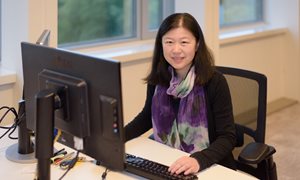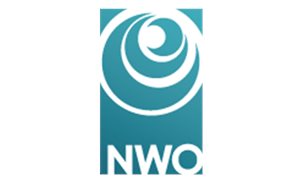 My name is Bryan van den Broek and I have a Dutch nationality. I am a PhD-candidate at the Laboratory of Medical Immunology – Section Pediatric Infectious Diseases and part of the theme Infectious diseases and global health.
My name is Bryan van den Broek and I have a Dutch nationality. I am a PhD-candidate at the Laboratory of Medical Immunology – Section Pediatric Infectious Diseases and part of the theme Infectious diseases and global health.
When you were a kid what did you want to be when you grew up? Can you tell us something about your child years.
My parents had a farm and there was plenty of space to explore. In the summer my brother and I often caught frogs and tried to collect spawn (kikkerdril). I always had an interest in nature and in particular in microbs. At first I wanted to become a medical doctor to treat patients with infections, but later on I wanted to become a researcher to discover more about pathogens.
What was your previous academic training, where did you study and why that study?
Both my bachelor and master were Molecular Life Sciences here in Nijmegen. I choose this study because you study at the crossroad of chemistry and biology. I found this very interesting because you have a better molecular understanding what happens at the protein or DNA-level.
The RIMLS motto is: ‘Today’s molecules for tomorrow’s medicine’. What does this mean for you?
It is the core of the PERFORM project that I am part off. We try to find a novel biomarkers to develop a new diagnostic test for children with fever. Furthermore, it also tells us that we can change medical treatment in the future. Therefore as researchers, we should have a vote in the Works Council to influence decision for the future. So vote CNV jongerenlijst for the Works Council elections.
Who is your great example as scientists? And please give a motivation why.
Antonie van Leeuwenhoek. He developed the microscope and discovered micro-organisms but by trade he was a draper. Showing that if you have an interest in science, you can do science.
Which research discovery that you have made has made you most proud?
That is on its way.
Given unlimited finance what experiment would you perform?
I would try to find a better and quicker way to determine a causative SNP.
What does your working area (desk, office) look like and what does it say about you (or your research)?
I try to keep it tidy, but after a while it becomes more and more cluttered.
Nominate a colleague to be in the spotlight and what would you like to ask him or her?
Pieter Langerhorst. How did you become a massspectrometrist?
What type of person are you, quick insights:
a) Mac or PC? : PCb) Theater or cinema? : Theater
c) Dine out or dine in? : Dine in
d) Ferrari or Fiat? : Fiat
e) Shopaholic or chocoholic? : Shopaholic
f) Culture or Nature : Nature
Related news items

A tunable and injectable local drug delivery system for personalized periodontal application
11 May 2020 In Journal of Controlled Release, Fang Yang and colleagues, have designed and formulated a local delivery system by loading the PLGA-drug microspheres into PIC hydrogel. This system exhibited appropriate injectability, long-term structural stability, and no obvious in vivo inflammatory response. go to page
Three Vici grants for Radboudumc researchers
20 February 2020 Christian Beckmann, Sander Leeuwenburgh and Annette Schenck each receive a 1.5 million euro Vici research grant from NWO. go to page
A personal touch of Sander Leeuwenburgh
21 November 2019 In order to promote interaction amongst colleagues within RIMLS, we have a ‘personal touch’ series setting employees in the spotlight. A light-hearted manner to learn about the colleagues you know and those you don’t. This week: Sander Leeuwenburgh. go to page
A personal touch of Frank Wagener
10 October 2019 In order to promote interaction amongst colleagues within RIMLS, we have a ‘personal touch’ series setting employees in the spotlight. A light-hearted manner to learn about the colleagues you know and those you don’t. This week: Frank Wagener. go to page
NWO grant to develop new biomaterials for improved regeneration of bone defects
20 August 2019 Sander Leeuwenburgh, theme Reconstructive and regenerative medicine, and Roland Brock, theme Nanomedicine, were recently awarded with a grant of 581 k€ by NWO, domain Applied & Engineering Sciences, to develop new biomaterials for improved regeneration of bone defects. go to page